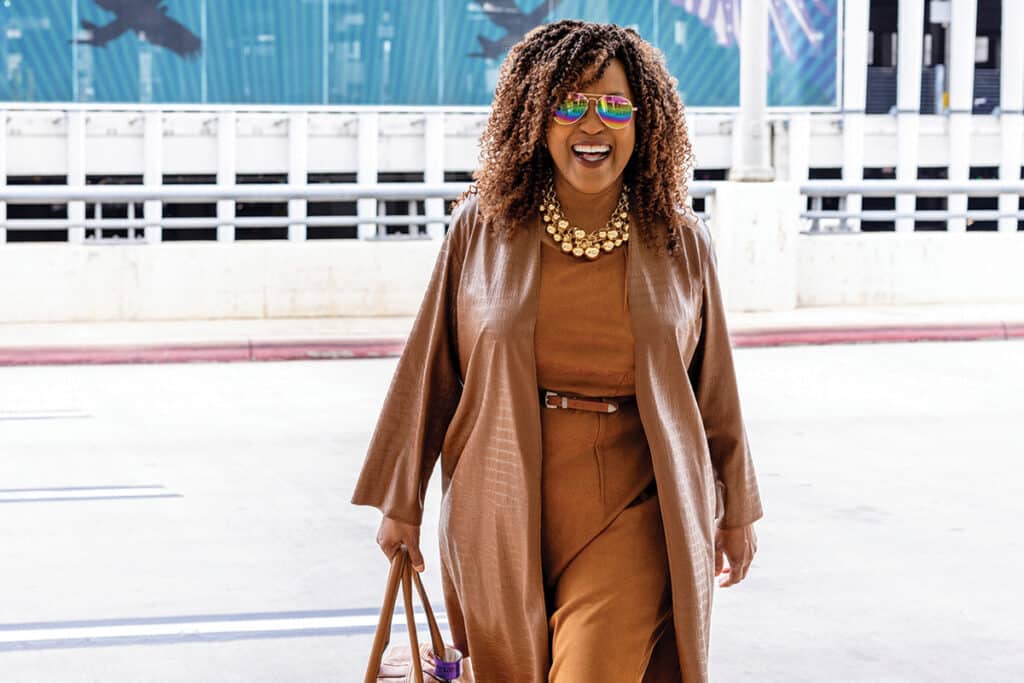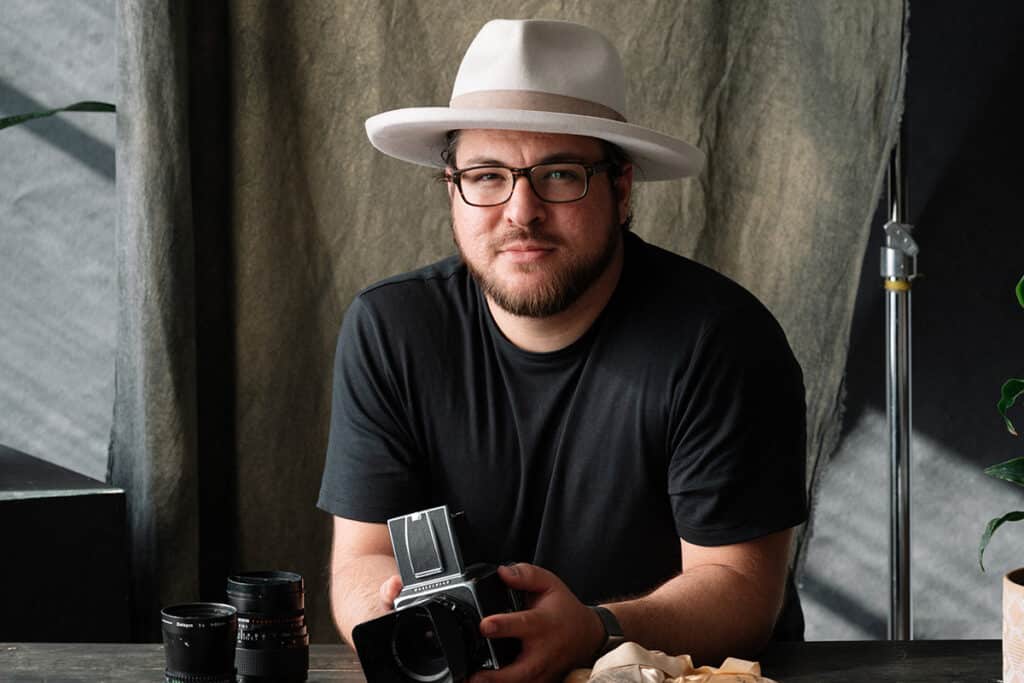Most people get married hoping for a long and happy life together, but, sadly, it doesn’t always work that way. An accident, illness or divorce may bring a marriage to an abrupt end, leaving people bewildered and struggling to regain their stride.
Some deal with it better than others. But all must forge ahead as best they can. Below are the inspirational stories of three women who did just that, not without pain, but with courage and perseverance.
The call that changed her life
It was 4 p.m. on a Wednesday in May 1995 when the phone rang in Katherine Shields’ home. What she heard was bad news. Her husband, Charles, had had an accident, the voice on the other end said. He was in the hospital in San Angelo. Charles had been on his way to Lubbock to pick up their oldest daughter from college when his Suburban collided with an 18-wheeler near Brady.
Shocked, Katherine jumped in the car and headed north. But by the time she reached the hospital, her husband of 20 years was dead.
“My reaction was almost like disbelief, hoping that it was a bad dream. But it was very real,” recalls Shields, a svelte mother of five, whose baby at the time was only 20 months old. “This was the man I started dating at 19, the father of my five children. All I could think of was”five kids without their daddy!'”
She was 43, and she knew that her life would never be the same. Just before Charles’ death, the family had been on top of the world, happily building their dream house in Fair Oaks Ranch and growing their business. A former insurance salesman, Charles had realized his ambition to become a McDonald’s franchise owner while Katherine was content to be his wife and the mother of his children. Now, instead of preparing her son’s high school graduation party, she was planning a funeral and she had to face all sorts of hard choices: what to do with the not-yet-completed house and what to do with the business. She had only two weeks to decide on the latter.
“I prayed about it, and the answer was to keep the business and move forward,” she says. “It was scary because Charles was the one in charge, but I knew the Lord would give me the strength to do it.”
Shortly after, she embarked on a year-long training program required for all new franchisees while keeping the existing two restaurants running. Fortunately, the employees stayed loyal, and the McDonald’s Corporation offered all the support it could. The Shieldses were the first black franchise owners in San Antonio, and the company valued that.
Before she even completed the training, Shields was offered a third local McDonald’s location and found herself facing another hurdle: financing and dealing with banks.
Today she is an established, confident businesswoman, a board member of the Greater San Antonio Chamber of Commerce, who is often invited to speak to community groups. Although she has an office away from the restaurants, she spends most of her days “on location,” consulting with staff, interacting with customers and lending a hand wherever it’s needed. If that means sweeping the floor, so be it.
Five years ago, she took another loan to renovate her first restaurant at I-35 and Walters Road. Located across the freeway from Fort Sam Houston and close to the SBC Center, the eatery is a bright, inviting space and a business success story. That’s also where two glass cases display an assortment of recognition plaques and awards for Shields’ community work, including the one she is especially proud of — the Ronald Award given by the McDonald’s Corporation to the most outstanding leader among its regional franchisees.
“I never really had an opportunity to grieve,” says Shields, looking back at her traumatic experience. “I never had the option of giving up because I had five reasons (her kids) not to. Would I do anything different? Well, you can’t stand still or you would get run over. You can’t back up; that was not an option. Moving forward was the only option.”
Just as she took a proactive role on the business front, she quickly moved to make sure her children, especially the boys, would have male role models in their lives. Her two younger boys ended up attending the San Antonio Academy, where, she felt, the environment would be beneficial in that regard. Beyond that, she stretched herself as much as humanly possible.
“It was a process of juggling different responsibilities, especially since the range of their ages was so wide,” says Shields. “It was definitely a challenge, but I was there for them. Also, soon after my husband died, my brother and his family moved to San Antonio, so that helped.”
Though she sounds a bit like Superwoman, she does acknowledge being ambushed by grief more than a few times when at the end of the day she returned home and “the person who sacrificed and worked so hard to realize our dream wasn’t there to share all of this with.” At this point in our conversation, both our eyes are tearing, hers because of her memories, mine in sympathy, but also because her story is such a vivid reminder of life’s fragility.
Now remarried to James Berry, an old acquaintance from her hometown of Henderson, she says she’s been blessed twice with good husbands. The couple live with her now 12-year-old “baby” in that dream house that Shields decided to complete after all.
Her example has inspired the wives of other franchise owners to go through the corporate training, “because they saw what happened to me.
“It’s important for husbands to have a will,” she tells women, “and it’s important for the wives to be aware of the financial situation and that things are in order.”
Friends can be life-savers
Janice Clyborne smiles as she tells her visitor how she met her husband, Bill.
It was sort of a blind date. The guy who was supposed to take her out had to cancel but asked if she wanted to go out with his roommate instead. Janice agreed, met Bill, and the rest, as they say, is history.
They married before she was out of college and had “a wonderful life together.” Bill first practiced law for 10 years and later worked in the trust department of Frost Bank while Janice devoted herself to her two children and volunteer work. She was a member of the Junior League and a board member of the Friends of the McNay. The couple loved music and browsing through museums, traveling and socializing with friends.
“One of the things that really drew me to him was his childlike sense of wonder. His life was full of joy,” she says. But just as in the Shields’ case, all of that came to an abrupt stop on the afternoon of July 27, 2002, when Janice awoke from a nap to find her husband lying next to her, strangely unresponsive. She shook him, she tried CPR, and then, in panic, called EMS. But nothing could be done. At 60, Bill had died in his sleep, a victim of ventricular fibrillation.
After the funeral, she told her young adult children, who were at different stages of their university education, to do “what made sense for them.” She didn’t want them to feel obligated to take care of her. Still, her son Clifton decided to delay graduate school for a year to stay home with her, to heal and regain his stride. Daughter Caroline went back to school.
“What got me through in the beginning are my two friends who were recent widows,” recalls Clyborne. “They were at my door the next day. When they walked in, I said,”We belong to a club that we never wanted to join. Thank you for being here.'”
The two, Pat Bose and Holly Denton, took her to a support group for the recently widowed organized by the Porter Loring Mortuaries, and for a year Clyborne went to every meeting and attended every program offered there.
“One advantage of a support group is that you can express your intense emotions,” she explains. “When you lose someone close, you begin to experience strong feelings of anger, despair, fear and anxiety. The group is a safe place to park those feelings. If you do that with your friends, you may scare them. Also, you lose your compass as to what is appropriate grief. Paula Loring, who leads these programs, was there to offer a reality check, to tell us where we were in the grieving process. That entire first year you have a great need to talk about your spouse, about the relationship, all the time.”
Eventually, however, one must move on. To help her on that path, Clyborne also took advantage of the funeral home’s program called “Living On,” which examines the risks one must take to start a new life.
Among the things Clyborne found useful at this stage were changing familiar patterns and, most important, finding work. Work gives you a new focus, she says. But deciding on a job wasn’t easy. Because she had connections in the community, she was able to secure a number of “informational interviews” with various employers.
Nothing clicked, however, until she realized that she would like to work in a funeral home, assisting grieving families. That meant going back to school to obtain a funeral director’s license. Like Shields, Clyborne discovered that overcoming challenges is a powerful confidence booster.
“I was never great with numbers, but I had to pass a course in accounting,” she says. “It was a stretch for me, but I worked very hard and made 100 on the finals. Then I started wondering what else I can do that I thought I couldn’t.”
She also learned how to “downsize” her lifestyle, though thanks to life insurance, there were no immediate financial pressures. Both Mom and the kids completed their education — if with the help of loans — and Clyborne has recently been hired as a funeral director at Porter Loring.
Asked about dating, she nods, admitting that that’s probably something she ought to do, but has not had a chance yet. “I don’t get lonely, though. As a widow, you have to redefine what makes you happy. When Bill died, I felt that the earth should stop spinning, and yet here I am three and a half years later, and when I wake up in the morning, I am happy. You have to reinvent your life in a way that’s meaningful for you,” she says.
Her advice to other widows is to seek help. A bereaved person needs it and should not be afraid to ask for it, she says. With support from friends and the passage of time, one can even make some pleasant discoveries:
“For months I said to myself, I am a widow now, there must be some advantages to being a widow. It took me a long time to find one. Marriage is all about compromise, so there is always a part of yourself that you send out to the desert. Well, now you can retrieve that part, invite it back. We (the children and I) also invite a part of Bill, his playfulness, into our lives today.”
Divorce may simplify life
If you are a tea lover, you probably already know a charming shop in The Colonnade called Teapot Heaven. It sells 101 different teas — all loose-leaf, of course — plus accessories, porcelain tea sets, miniature tea sets and an assortment of gift items.
“It’s like a candy store for tea lovers but without the calories,” says proprietor Joy Miller, as she gives her visitor a tour of the premises.
Miller opened the store on June 28, 2002, three days before her divorce from her husband of 10 years became final. The opening was an auspicious new beginning, coming as it was on the heels of a turbulent period in Miller’s life.
Troubles started the previous September, when, following a successful career as an insurance underwriter, including 15 years at USAA, she was laid off in a wave of company downsizing. Financially, it was a big blow to her family.
A tea lover herself and the daughter of a retail businessman, Miller decided to invest her severance pay and pretty much all she had into her present shop. Then her beloved father died, and shortly afterward her husband informed her that he wanted out of the marriage. That was a lot of change coming at her fast.
“He told me he didn’t want to go into a risky new venture with me,” she recalls, “but that was really the straw that broke the camel’s back. I knew things were not perfect, but I thought we could fix them. I never thought in terms of divorce. I was shocked and surprised that he did.”
Surprised and hurt but determined to maintain a sense of normalcy for her children. Ballet lessons continued and a birthday party scheduled for her then-8-year-old daughter, Claire, took place as scheduled. She wanted to be a good role model for the kids, but she admits that after the separation “everything felt tenuous, which can be unsettling when you are trying to hold down the fort.
“I would have these moments when I thought:”I will be living on the street, with no kids, no house, no income. Will I be in a women’s shelter?'”
To make herself feel better, she would make a cup of tea and curl up with her two dogs (“Really people in fur suits,” she quips) on a futon to watch Conan O’Brien on TV.
But the crucial thing that helped, says Miller, was finding a good lawyer and letting her handle the whole divorce business. “I handed everything to her,” she says. “I told her, you drive, I am getting in the back seat. I am no expert on divorce, she is. That made all the difference in my recovery in the period between separation and actual divorce.”
That move freed her to focus on setting up her fledgling business and eventually on her second job, as a contract underwriter for a company that provides specialized services to insurance companies. The latter brings in good money, and she can do the work anywhere as long as she has a laptop nearby.
After the usual legal wrangling, the former spouses worked out a deal both could live with, including joint custody of the children. The girls now spend two nights a week and every other weekend with their dad and sometimes even brag about having two rooms in two houses. Miller gives her ex credit for being a good father who also pays child support “religiously.” As a consequence, the children have rallied well, their grades have not wavered, and both are doing fine.
And so is Mom. “I love being divorced, my life is simpler,” says Miller, who has just turned 50. “I am in charge. I think I adapted well because I like being alone. I am the worst judge of men,” she adds. “No reason for me to date. To start another relationship would mean to resurrect new negotiations and sharing, and right now I am too darn selfish to try. I am at peace now. Colin Firth could walk into Teapot Heaven, and I would just sell him the tea that he wants.”
Still, when the subjects of love and marriage come up with her growing daughters, she doesn’t want to throw a monkey wrench into their dreams. So she “still gives them the traditional version.” Why take the fun out of it? At the same time, she advises the girls to look for good qualities in a guy, to look for someone like her own father, whom she describes as a gentleman, a good listener and a calming influence who had eyes only for his wife.
These days, her own dreams are of a different nature. Once her youngest leaves for college, she sees herself sipping tea in Scotland, free to roam the majestic countryside.
Author: Jasmina Wellinghoff
Photographer: Liz Garza Williams




